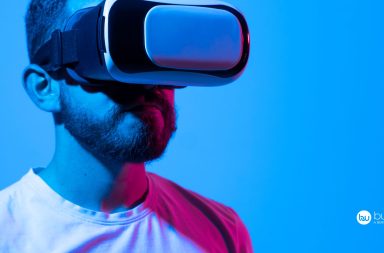Project to leverage vocal biomarkers for cognitive assessment of patients ages 55 and above in home environment.
BOSTON – Sonde Health, a health technology company committed to bringing accessible health monitoring to everyone, in conjunction with the Massachusetts General Hospital (MGH) Frontotemporal Disorders (FTD) Unit, has been selected by the Massachusetts Artificial Intelligence and Technology Center for Connected Care in Aging & Alzheimer’s Disease (MassAITC) to lead a pilot study focused on leveraging vocal biomarkers for remote detection and monitoring of mild cognitive impairment in the home environment.
Funded by MassAITC and the National Institute on Aging (NIA), a division of the U.S. National Institutes of Health (NIH), the project is part of a $1.7 million grant to explore the use of artificial intelligence and other advanced technologies for in-home care. Specifically, it will evaluate the feasibility of obtaining voice recordings of older individuals in the home environment that can be used to longitudinally monitor speech and memory functions.
Nearly 90% of older adults wish to stay in their homes for as long as possible. Digital technologies, and digital biomarkers in particular, have great potential to support this shift, said David Liu, CEO of Sonde Health. By monitoring cognitive health from afar through vocal biomarkers, Sonde’s technology could help facilitate this desire to ‘age in place,’ offering these patients the ability to remain in a familiar environment without sacrificing quality care.
The project will enroll 50 adults from the FTD Unit. Participants will be ages 55 and above and represent a range of cognitive function from normal cognition through subjective cognitive decline, mild cognitive impairment (MCI), and mild dementia. The longitudinal study will examine the potential for Sonde’s vocal biomarker platform to monitor and detect changes in cognitive function for individuals at home. Participants will record 10-15 different voice samples and responses to cognitive assessments both in the laboratory setting and from their personal smartphones at home. Voice recordings will be analyzed for acoustic features that correlate with mental status, which are expected to provide insights into how vocal biomarkers can be used as an effective tool for tracking cognitive health over time.
The pilot is part of MassAITC’s larger mission to realize the goal of aging at home through interdisciplinary research. It will serve as an important reference data set to further test and validate vocal biomarkers relevant to the detection or monitoring of cognitive impairment. This study builds on several current Sonde projects focused on testing cognitive biomarkers, including a multi-year strategic partnership with GN Group to research and develop commercial vocal biomarkers for MCI.
As the population of older adults continues to grow, there is a critical need for remote monitoring technologies that can detect cognitive impairment early and accurately, said Deepak Ganesan, Director of the MassAITC. By supporting a study that combines Sonde Health’s vocal biomarker technology and Massachusetts General Hospital’s expertise in clinical dementia research, we believe we’re one step closer to developing the tools and resources needed to elevate aging-in-place care models.
With this pilot study, we are excited to partner with Sonde Health to contribute new insights into how voice-based remote monitoring of cognitive function for older adults will potentially augment specialized clinical evaluations, said Brad Dickerson, MD, Director of the MGH Frontotemporal Disorders Unit and Professor of Neurology at Harvard Medical School.
Research reported in this press release was supported by the NIA of the NIH under award number P30AG073107.
About Sonde Health
Sonde Health is a leader in voice-based health monitoring. Sonde serves top health companies, providers, pharma, and device OEMs through its vocal biomarker platform. Leveraging a best-in-class voice data set with over 1.2 million samples from 85,000+ individuals on four continents, Sonde uses advanced audio signal processing, speech science, and AI/machine learning to sense and analyze subtle vocal changes due to changes in a person’s physiology to provide key insights into health and well-being. www.sondehealth.com
About Massachusetts General Hospital
Massachusetts General Hospital, founded in 1811, is the original and largest teaching hospital of Harvard Medical School. The Mass General Research Institute conducts the largest hospital-based research program in the nation, with annual research operations of more than $1 billion and comprises more than 9,500 researchers working across more than 30 institutes, centers and departments. In August 2021, Mass General was named #5 in the U.S. News & World Report list of “America’s Best Hospitals.” MGH is a founding member of the Mass General Brigham healthcare system.
The content is solely the responsibility of the authors and does not necessarily represent the official views of the National Institutes of Health.



